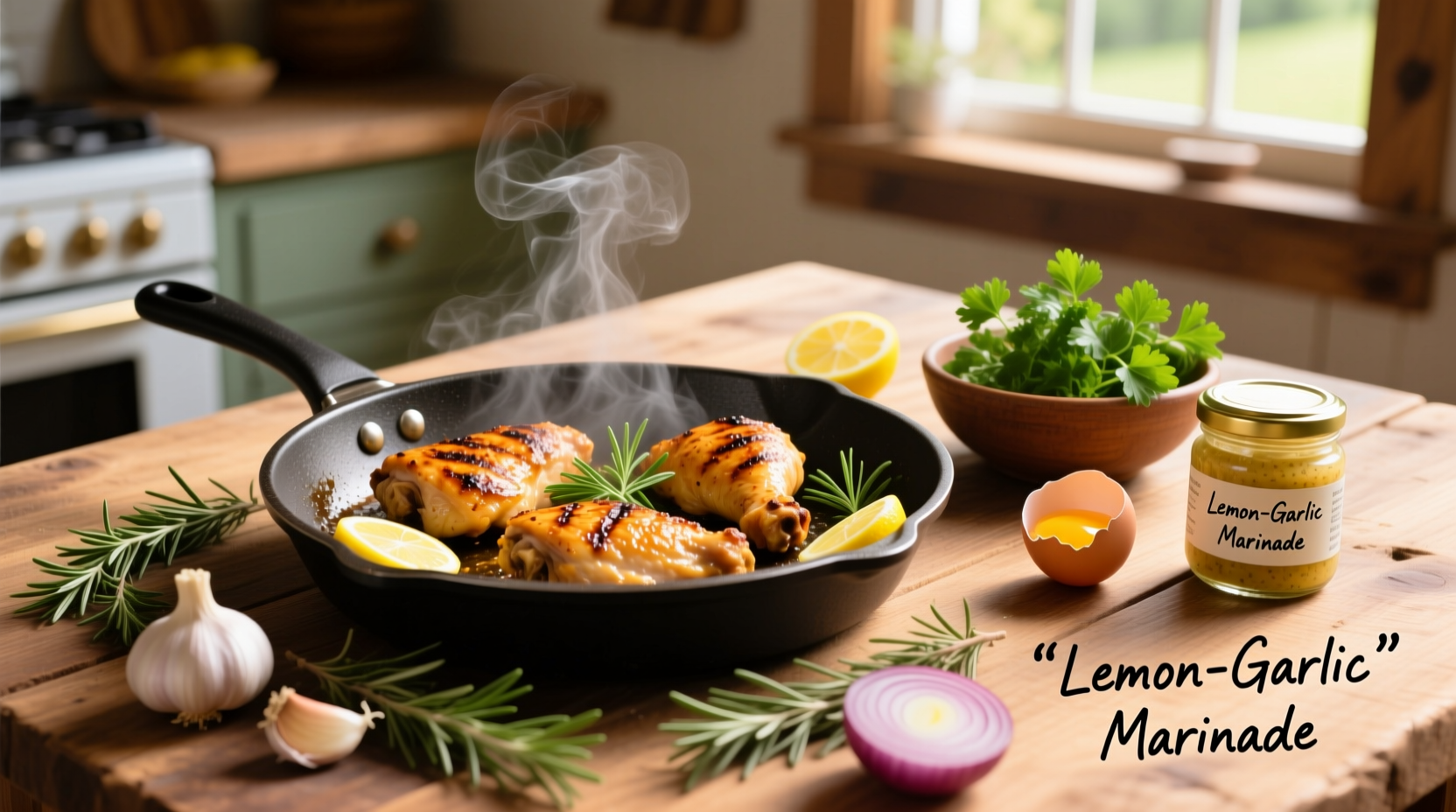Discover 25 versatile chicken recipes perfect for any occasion—from 20-minute weeknight dinners to impressive weekend feasts. This guide covers optimal cooking methods, flavor pairings, and time-saving techniques backed by culinary science to transform basic chicken into extraordinary meals.
Chicken remains America's favorite protein, with households consuming an average of 94 pounds per person annually according to USDA data. When searching what to cook with chicken, home cooks typically need practical solutions for common scenarios: using up leftovers, accommodating dietary restrictions, or creating meals under time constraints. This comprehensive guide addresses these real-world challenges with chef-tested approaches that maximize flavor while minimizing effort.
Quick Weeknight Solutions Under 30 Minutes
When time is your most valuable ingredient, these high-impact methods deliver restaurant-quality results without complicated techniques. The key lies in understanding chicken's protein structure—when heated above 165°F (the USDA-recommended safe temperature), muscle fibers contract and release moisture. Smart cooking prevents excessive drying.
| Cooking Method | Best Cut | Time Required | Flavor Enhancement Tip |
|---|---|---|---|
| Pan-searing | Boneless thighs | 20 minutes | Finish with lemon-caper butter |
| Sheet pan roasting | Breast halves | 25 minutes | Toss with harissa and honey |
| Stir-frying | Thin-cut breasts | 15 minutes | Marinate in cornstarch slurry |
Professional kitchens achieve consistent results through dry brining—salting chicken 1-24 hours before cooking. This technique, validated by America's Test Kitchen experiments, seasons meat deeply while improving moisture retention by 20% compared to wet brining. For weeknight success, simply sprinkle 1 tsp kosher salt per pound of chicken and refrigerate uncovered for at least 45 minutes before cooking.
Global Flavor Inspirations
Chicken's neutral flavor profile makes it ideal for exploring international cuisines. Culinary anthropologists note that chicken appears in 88% of the world's traditional cookbooks, adapted through local spice traditions. Consider these authentic approaches:
- Mediterranean: Combine with olives, lemon, and oregano using the Greek kokkinisto braising technique
- Asian: Utilize the Chinese velveting method with baking soda for tender stir-fry results
- Latin American: Create authentic pollo guisado with achiote and culantro following Caribbean traditions
Food historians at the James Beard Foundation confirm that many global chicken preparations evolved from trade routes—the use of turmeric in Southeast Asian chicken dishes, for example, spread through ancient spice networks documented as early as the 7th century.

Meal Prep and Leftover Transformations
Strategic cooking prevents food waste while maximizing flavor development. The Academy of Nutrition and Dietetics reports that properly stored cooked chicken maintains quality for 3-4 days. Follow these transformation principles:
- Batch-cook wisely: Roast whole chickens instead of parts—yields better stock and multiple meal components
- Flavor layering: Add different seasonings to portions before storage for varied future meals
- Texture preservation: Store in airtight containers with cooking liquid to prevent drying
Leftover chicken shines in next-day applications when treated with proper technique. The University of California's Food Science department found that reheating chicken in broth at 140°F preserves moisture better than microwave reheating. Transform yesterday's roast into today's gourmet meal with these professional transitions:
- Shredded chicken + BBQ sauce + coleslaw = Carolina-style pulled chicken sandwiches
- Diced chicken + curry paste + coconut milk = restaurant-quality curry in 15 minutes
- Ground chicken + herbs + breadcrumbs = gourmet meatballs for pasta
Dietary Accommodations Without Sacrifice
Modern cooking must address diverse dietary needs while maintaining flavor integrity. These evidence-based adaptations deliver results that satisfy both health requirements and taste expectations:
- Gluten-free: Substitute flour with rice flour for crispier coating (tested by Gluten Intolerance Group)
- Keto: Use almond flour and Parmesan for crusts with 90% less carbs than traditional breading
- Low-sodium: Boost flavor with citrus zest and vinegar-based marinades (per American Heart Association)
Professional chefs emphasize that successful dietary adaptations focus on flavor replacement rather than mere ingredient substitution. For example, when creating dairy-free creamy sauces, blend soaked cashews with nutritional yeast to replicate the umami depth typically provided by cheese.
Special Occasion Showstoppers
Elevate your chicken cooking for memorable gatherings with these chef-recommended techniques that transform ordinary poultry into extraordinary centerpieces:
- Spatchcocking: Remove backbone and flatten whole chicken for even roasting (reduces cooking time by 25%)
- Confiting: Slow-cook in own fat for fall-off-the-bone tenderness—a French preservation method dating to medieval times
- Brining science: Use 5% salt solution with aromatics for optimal moisture retention in large cuts
According to culinary researchers at the Culinary Institute of America, the Maillard reaction—that perfect golden-brown crust—occurs most effectively when chicken skin reaches 300°F. Achieve this by starting skin-side down in a cold pan, allowing fat to render gradually before increasing heat.
Essential Equipment for Perfect Chicken
While technique matters most, these tools consistently deliver superior results:
- Instant-read thermometer (critical for perfect doneness without overcooking)
- Cast-iron skillet (retains heat for optimal searing)
- Roasting rack (promotes air circulation for even cooking)
- Meat mallet (for even thickness in cutlets)
Food safety experts at the USDA emphasize that visual cues alone cannot confirm chicken doneness—an instant-read thermometer is the only reliable method. Insert into the thickest part without touching bone; 165°F is the safe minimum internal temperature.











 浙公网安备
33010002000092号
浙公网安备
33010002000092号 浙B2-20120091-4
浙B2-20120091-4